The meeting was opened by MEP Cassart asking the key question: What would a diet with significantly less animal protein mean? He said there is a continued demonisation of red meat consumption, yet some people such as the young, the elderly, and pregnant women get great benefit to their health from animal-source foods. Is the demonisation of meat really justified
MEP Bernhuber raised the issue with the ‘black and white’ approach to food, with some foods considered bad and others good. He said that while there is of course need to keep improving food production, there is a need to move away from this polarising approach to food consumption before it causes harm to our health.
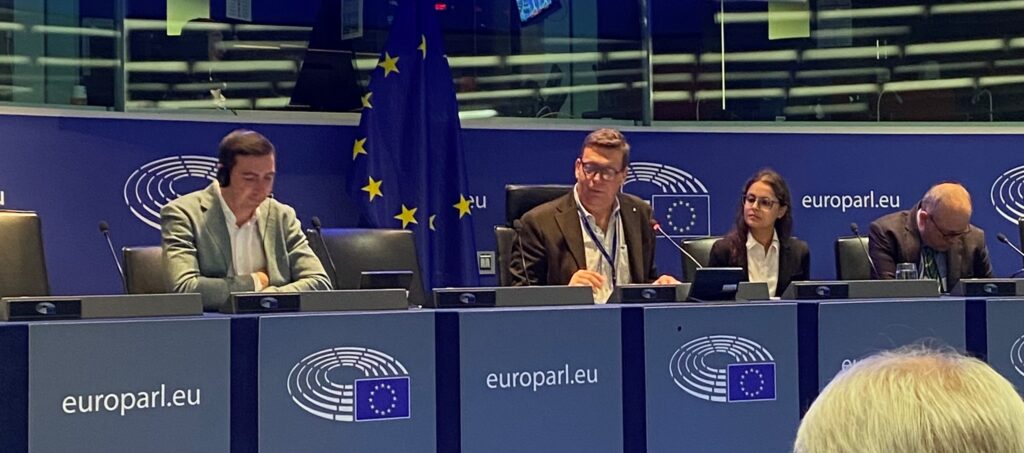
MEP Cassart gave the floor to the guest speakers who spoke on the following topics:
Flaminia Ortenzi from GAIN started the discussion by sharing some statistics on global deficiencies in essential nutrients before talking about the value of animal-source foods for global nutrition. She said that more than half the global population have inadequate intakes of several essential nutrients. More than 4 billion people do not consume enough iron, riboflavin, folate, and vitamin C. Flaminia highlighted that this is not just happening in the Global South. Looking at nutritional properties, she pointed out that there is no food that scores well alone across all nutritional values, hence why we need to have balanced diets with several types of foods. She concluded with a simple, fundamental fact: some of the key nutrients we need, can ONLY be found in animal source foods.
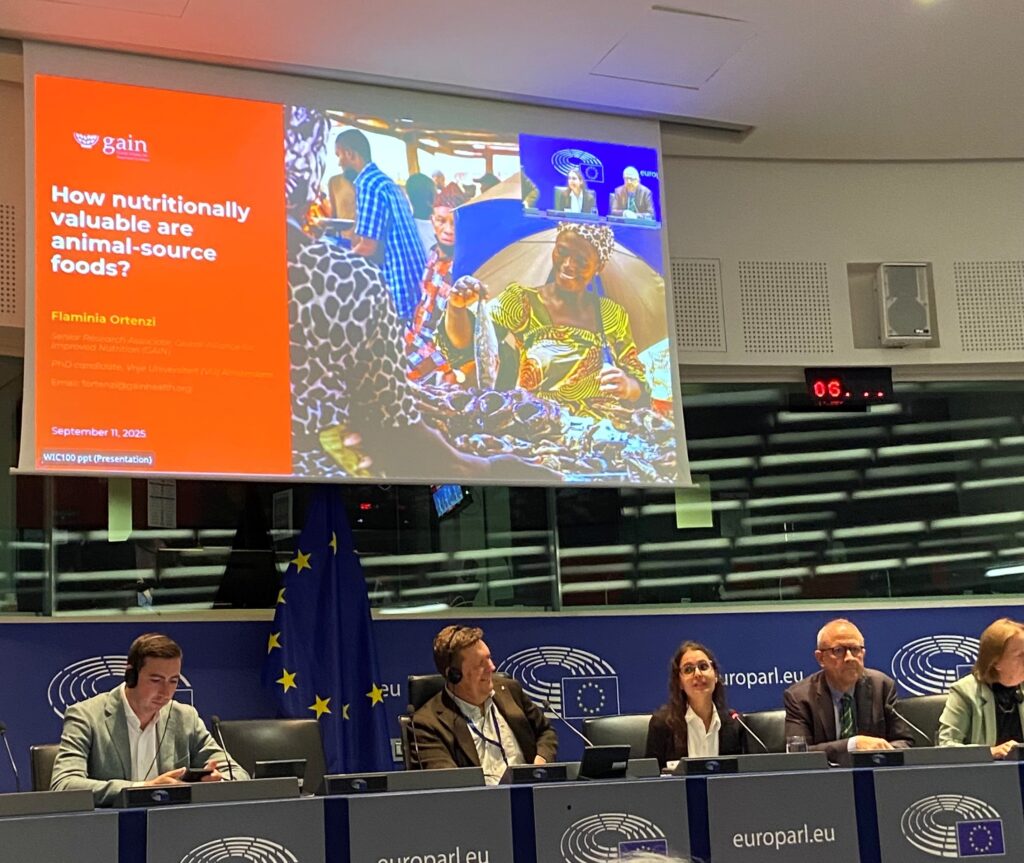
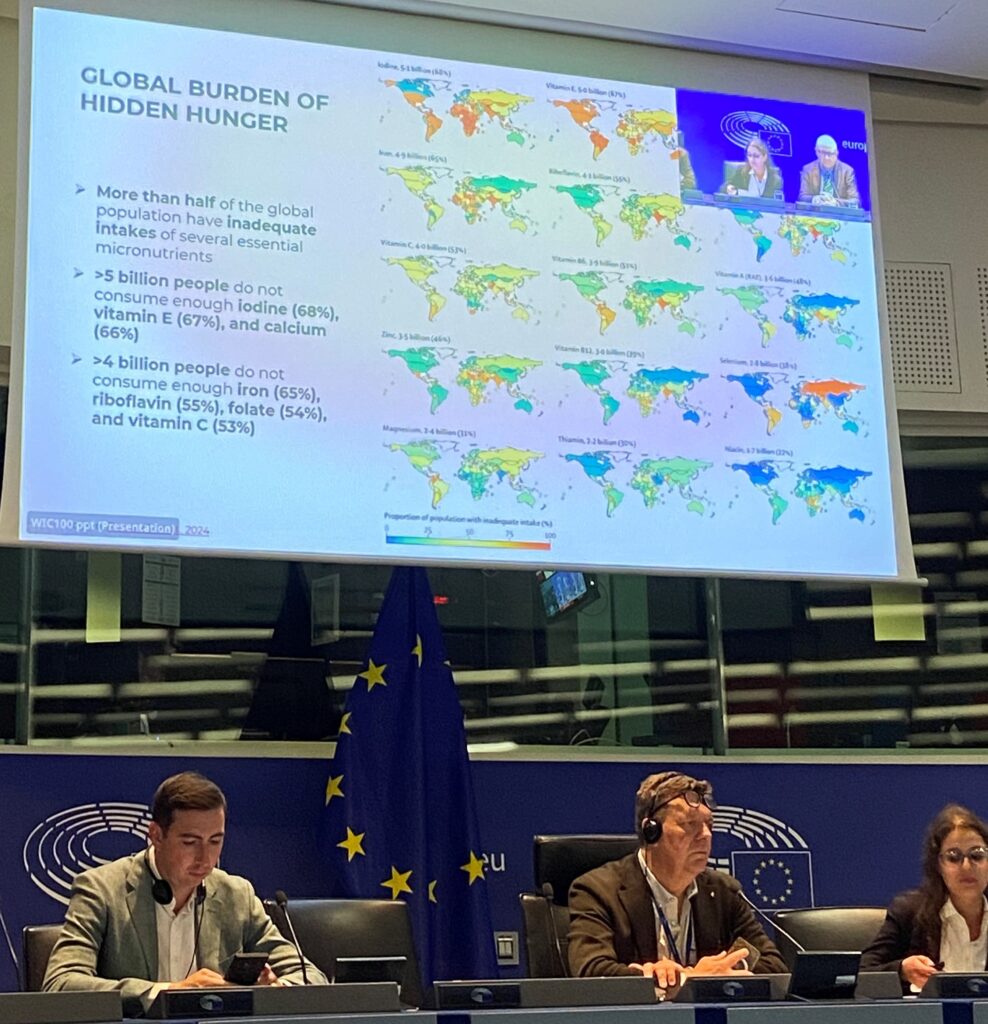
Next up was Jean-François Hocquette from INRAe who shared key findings from studies about food consumption. According to the Eurobarometer, the main factors that European consumers value in food purchases are cost (54%), followed by taste (51%) and food safety (46%). He then outlined some key points from the recently published EASAC report on Meat Alternatives. Whereas – depending on processing intensity – there may be a reduced environmental impact with plant-based analogues, but there are some concerns in terms of micronutrients with regard to composition and bioavailability. When it comes to cultured meat he said that there are several uncertainties with the life cycle assessments (LCAs) and health benefits and risks remain uncertain due to limited market exposure.
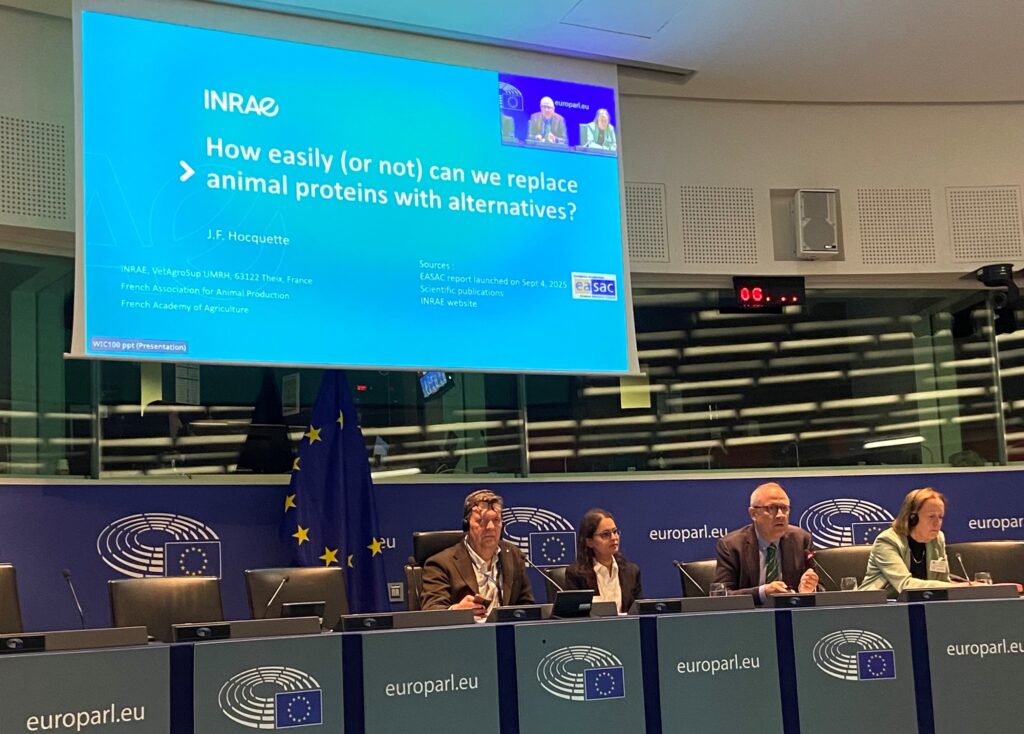
Alice Stanton showed a plethora of headlines saying ‘eggs, or dairy, or red meat are bad for you’ but stated that these claims have been debunked by scientific studies. Large cohort studies have shown that red meat has a neutral effect on mortality and cardiovascular health. Alice highlighted a concern with scientific publications, policy documents and dietary guidelines repeating poor calculations and estimations about meat consumption. She pointed in particular to the Global Burden of Disease study which showed a 36-fold increase in deaths attributed to red meat consumption from the 2017 to the 2019 publication. In summary she said that a “A healthy diet helps to protect against malnutrition in all its forms, as well as against non-communicable diseases, including diabetes, heart disease, stroke and cancer” (WHO), and that dramatic reductions in animal-source foods, as advised by many plant-based diets, will worsen already prevalent micronutrient and protein deficiencies worldwide.
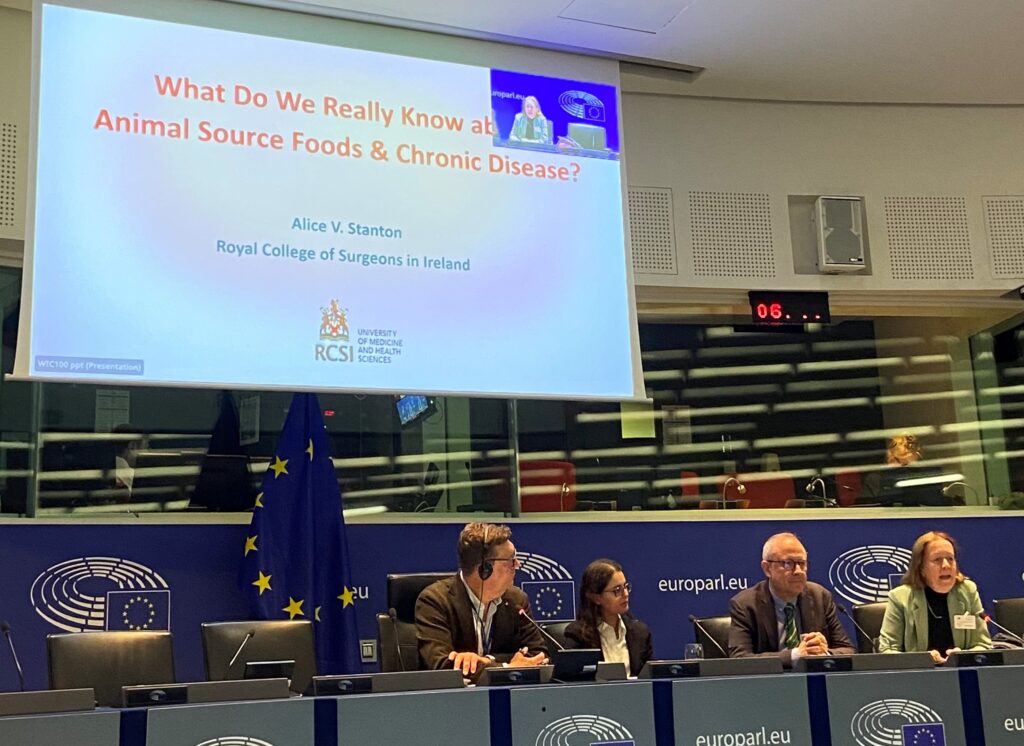
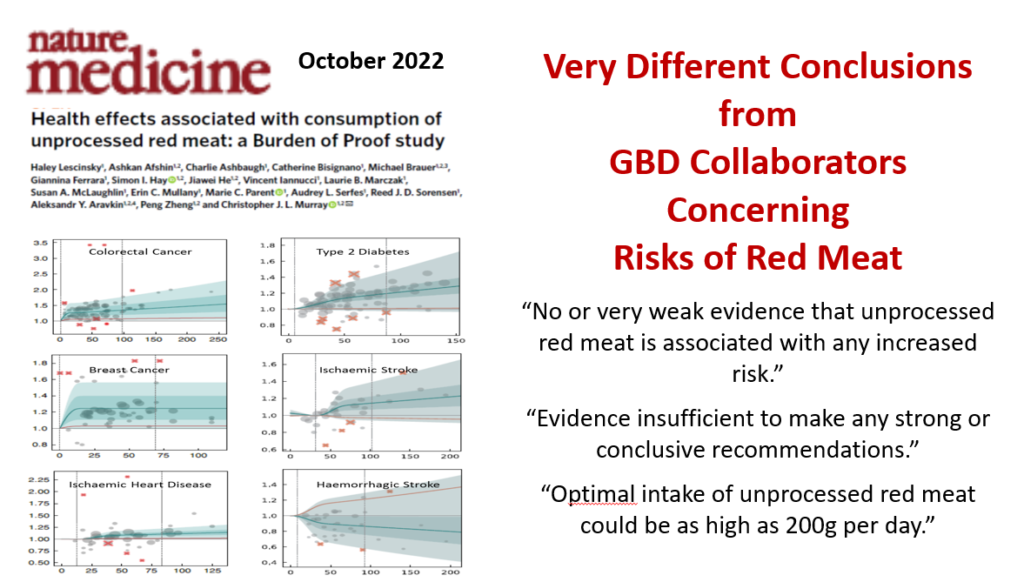
Focus on EU dairy production Over the past decades, the European Union has significantly reduced livestock emissions through improved feed
Livestock farming is essential for feeding Europe and maintaining food autonomy — a point highlighted by Loïg Chesnais-Girard, President of
At the Sustainable Livestock Intergroup meeting on animal breeding MEPs Bernhuber and Benoit Cassart shared a clear message to those